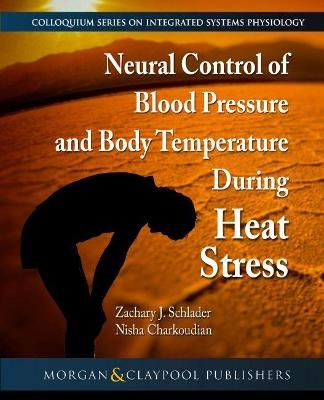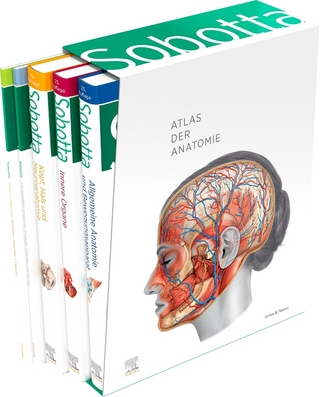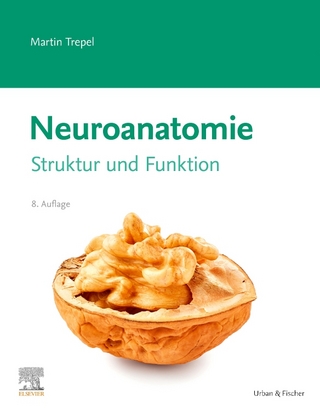
Neural Control of Blood Pressure and Body Temperature During Heat Stress
Morgan & Claypool Publishers (Verlag)
978-1-61504-778-9 (ISBN)
Environmental heat stress is associated with a marked decrease in orthostatic tolerance (OT), which is defined as the ability to stand or sit upright without symptoms of dizziness, lightheadedness, presyncope, or fainting. In most healthy humans, the autonomic nervous system makes rapid and balanced adjustments to heart rate and peripheral blood flow, such that most people are able to stand up ""successfully"" most of the time, in most environments. The goal of this book is to discuss various aspects of the sympathetic neural response to heat stress, how the sympathetic nervous system coordinates the successful integrative physiological response to orthostasis, and what happens when it encounters both challenges simultaneously. We include overviews of mechanisms of thermoregulation and blood pressure regulation in humans, with particular focus on control of cardiac output and neurovascular control mechanisms during heat stress. We discuss the implications that these changes have for distribution of peripheral blood flow and, in particular, for blood flow to the cerebral circulation. The added stressor of dehydration is also discussed, as it so often goes hand in hand with heat stress. We end with a brief presentation of countermeasures against the decreases in OT with heat stress.
Zachary Schlader received his Ph.D. in Sport and Exercise Science in 2011 from the Massey University (New Zealand). He subsequently completed a postdoctoral fellowship at the Institute for Exercise and Environmental Medicine at the University of Texas Southwestern Medical Center and Texas Health Presbyterian Hospital Dallas, which is located in Dallas, TX. In 2014, he joined the faculty of the Department of Exercise and Nutrition Sciences at the University at Buffalo (Buffalo, NY). He is a Fellow of the American College of Sports Medicine and currently serves on the editorial board for the American Journal of Physiology: Integrative, Regulatory, and Comparative Physiology. His research is focused on understanding the implications of thermal stress on integrative physiology in healthy and ""at risk"" (e.g., manual laborers, older adults, various disease states, etc.) populations. To date, his work has focused largely on the autonomic and cardiovascular responses elicited by changes in body temperature. The overall goal is to elucidate the underlying mechanisms and identify ways to mitigate the adverse effects of thermal stress. Nisha Charkoudian received her Ph.D. degree in Physiology in 1999 from the University of Texas Health Science Center at San Antonio. She completed two post-doctoral fellowships, the first (1999-2000) at the University of Angers in Angers, France, and the second (2000-2003) at the Mayo Clinic in Rochester, MN. She joined the faculty of the Department of Physiology and Biomedical Engineering at Mayo as Assistant Professor in 2003 and was promoted to Associate Professor of Physiology in 2008. She moved to the Boston area in 2011, where she joined the scientific staff of the U.S. Army Research Institute of Environmental Medicine. She serves as Associate Editor of the American Journal of Physiology: Heart and Circulatory Physiology and Medicine and Science in Sports and Exercise and is a member of the editorial boards of several other physiology journals, including the Journal of Applied Physiology. Her research is focused on the regulation of body temperature and blood pressure in humans. The main goals of her work are to increase understanding of how the sympathetic nervous system responds to changes in environment, blood volume, hormone status, and other challenges as it works to balance the competing demands of maintaining blood pressure, blood flow, and body temperature across the lifespan. D. Neil Granger, Ph.D., is Boyd Professor and Head of the Department of Molecular and Cellular Physiology at the LSU Health Sciences Center in Shreveport, Louisiana. His current research is focused on the role of the microcirculation in acute and chronic inflammation, and how risk factors for cardiovascular disease influence microvascular function. Granger has served on the editorial boards of the Heart & Circulation, GI & Liver, and Cell sections of the American Journal of Physiology, as well as Circulation Research, Microcirculation, Shock, Pathophysiology, Free Radical Biology & Medicine, Lymphatic Research and Biology, and Nitric Oxide Biology & Chemistry. He was Editor-in-Chief of Microcirculation and an Associate Editor of the American Journal of Physiology: GI & Liver Physiology. Joey P. Granger, Ph.D., is the Billy S. Guyton Distinguished Professor, Professor of Physiology and Medicine, Director of the Center for Excellence in Cardiovascular-Renal Research, and Dean of the School of Graduate Studies in the Health Sciences at the University of Mississippi Medical Center in Jackson, MS. He earned his doctorate from the University of Mississippi School of Medicine in 1983. Dr. Granger served as President of the American Physiological Society and is an Associate Editor for Hypertension. He has also served as the Editor of the Council for High Blood Pressure Newsletter and an Associate Editor for News in Physiological Sciences and American Journal of Physiology. He has served as a member of Editorial Boards of American Journal of Hypertension, American Journal of Physiology-Renal, American Journal of Physiology: Regulatory and Integrative Physiology, Journal of CardioMetabolic Syndrome and the Journal of the American Society of Hypertension.
1. Introduction and Overview
2. Heat Stress and Orthostatic Tolerance
3. Autonomic Control of Cardiovascular Function
4. Thermoregulation During Heat Stress
5. The Arterial Baroreflexes in Humans
6. Cardiac Output and Blood Flow Redistribution During Heat Stress
7. Neurovascular Control During Heat Stress
8. Control of Cerebral Perfusion During Heat Stress
9. Effects of Dehydration on Autonomic and Cardiovascular Responses to Heat Stress
10. Countermeasures for Improving Orthostatic Tolerance During Heat Stress
11. Summary and Conclusions
Author Biographies
| Erscheinungsdatum | 06.08.2018 |
|---|---|
| Reihe/Serie | Colloquium Series on Integrated Systems Physiology: From Molecule to Function to Disease |
| Mitarbeit |
Herausgeber (Serie): D. Neil Granger, Joey P. Granger |
| Verlagsort | San Rafael |
| Sprache | englisch |
| Maße | 152 x 229 mm |
| Gewicht | 525 g |
| Themenwelt | Medizin / Pharmazie ► Medizinische Fachgebiete |
| Studium ► 1. Studienabschnitt (Vorklinik) ► Anatomie / Neuroanatomie | |
| Studium ► 1. Studienabschnitt (Vorklinik) ► Physiologie | |
| Naturwissenschaften ► Biologie ► Humanbiologie | |
| ISBN-10 | 1-61504-778-6 / 1615047786 |
| ISBN-13 | 978-1-61504-778-9 / 9781615047789 |
| Zustand | Neuware |
| Haben Sie eine Frage zum Produkt? |
aus dem Bereich


